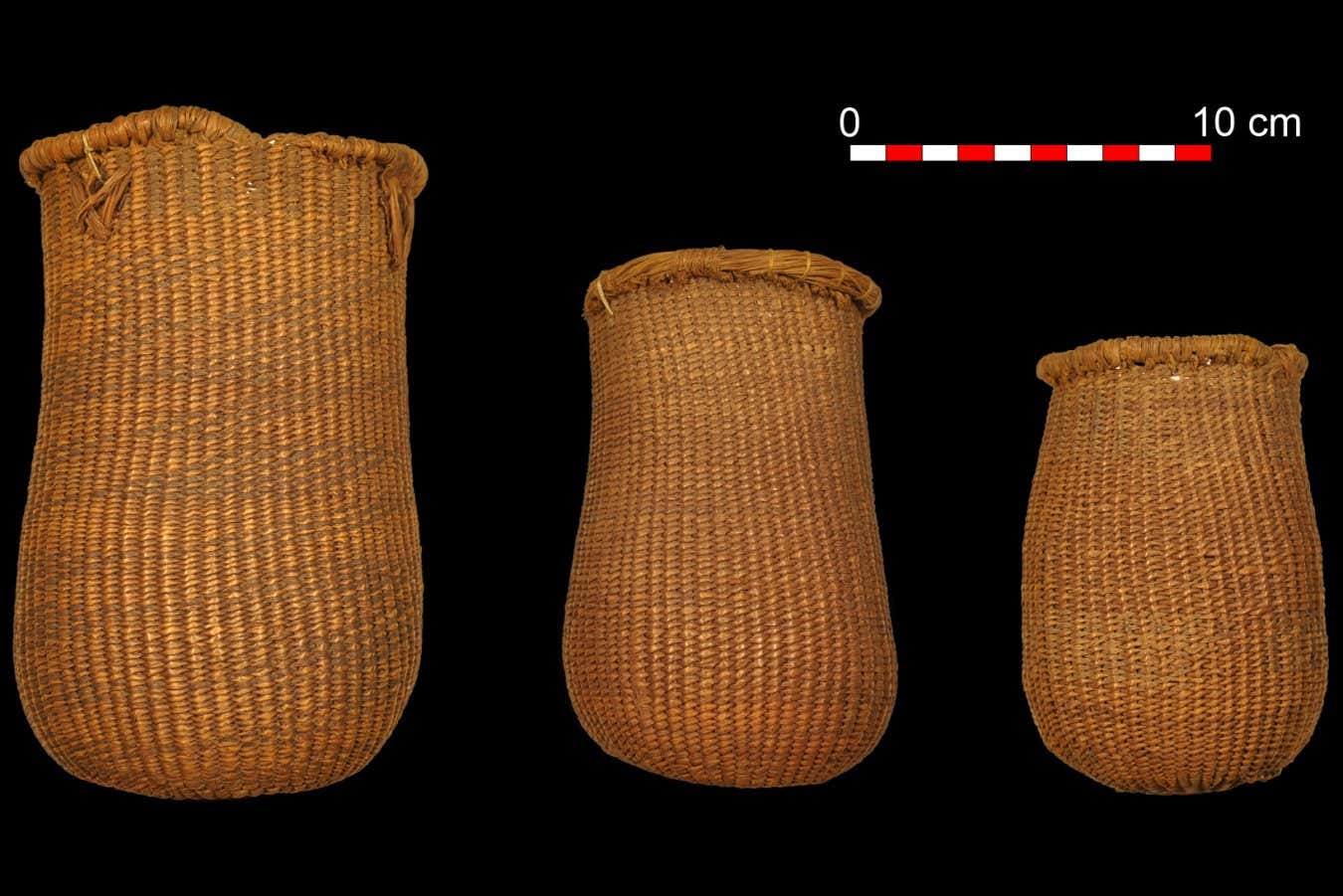Well-preserved artefacts found in a Spanish cave show that advanced plant-based crafts were practised in Europe 9500 years ago
By Chen Ly
27 September 2023
9500-year-old Mesolithic baskets from the Cueva de los Murciélagos in Spain
MUTERMUR project
Intricate baskets and shoes found in a Spanish cave show that people living in Europe thousands of years ago were skilled at weaving objects from plant fibres.
Cueva de los Murciélagos, or the Cave of the Bats, is a cave system in south-west Spain that was discovered during mining activities in the 19th century. Excavations of the cave have since revealed several mummified corpses alongside objects including baskets, sandals and a wooden hammer.
Francisco Martínez Sevilla at the University of Alcalá in Spain and his colleagues have now analysed 76 of these artefacts. They are considered among the best-preserved plant-based objects from prehistoric Europe, thanks to the low humidity inside the cave.
Advertisement
Around 65 of the items were found to be made from a fibre called esparto grass. This includes a set of baskets, with either a flat or a more cylindrical shape, as well as sandals that were made by crushing and twisting the esparto.
A wooden mallet and esparto sandals dated to around 6000 years ago MUTERMUR project
The other artefacts are made of wood and include tools such as a hammer and digging sticks.
